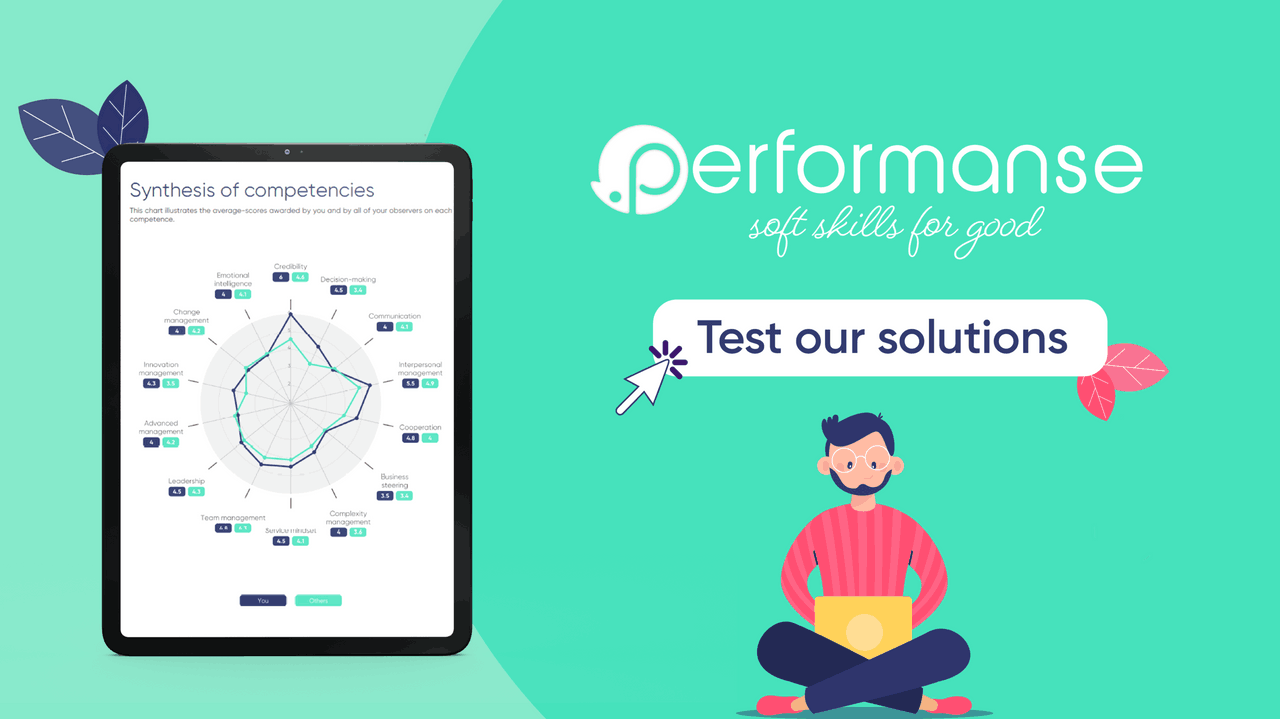What about the recruitment process?
Companies have understood that two profiles of candidates with the same qualifications will not automatically deliver the same level of performance. Hard skills, in other words, technical knowledge and skills, may be essential to enable recruits to be operational and achieve immediate objectives, but they now represent the minimum required.
Hard skills are no longer sufficient to gain access to a recruitment interview or to the levels of responsibility.
Hard skills are no longer sufficient to gain access to a recruitment interview or to the levels of responsibility and therefore of remuneration expected by candidates. It is now necessary to integrate ‘soft skills’ into the recruitment decision-making process. In this relational approach of discovery, the recruiter will be interested in understanding how the candidate functions for adapting to the organization’s codes (political, cultural).
What about the mobility process?
Even if ‘soft skills’ are less tangible decision-making criteria, isn’t there the same need to understand them among one’s own employees? According to 60% of companies that would like to invest in internal mobility, the answer is ‘Yes’.
However, in reality internal recruitments account for only a third of the cases, mainly for operational functions. The familiarity bias is responsible for this situation, causing companies to categorize employees according to what they do today, or what they have done in the past. It is also true that employees themselves, fearing that they will not be retained, sometimes refrain from applying internally. But in the end, it is above all the astonishing presence of a mutual ignorance and a partial vision of the other. Organizations today do not evaluate the potential (the less visible criteria) of their own employees enough!
And how about the desired psychological contract?
There are two links between us and our employers. The first, very tangible, is legal: it is the employment contract. The second is intangible: it is the psychological contract. It consists of the employee’s representations of his or her obligations to the employer. It reflects many questions related to the employee’s relationship to the job: how does the employee see himself in his job? What place does he give to the trust built up over time? How does he see the evolution of his responsibilities? How does he see the development of his skills? How important are the values and culture of the organization to him? There are as many answers, as many perceptions as there are people, as each person’s contribution to the life and development of the company may be different.
The psychological contract is rarely made explicit. There is no signed agreement between the parties. However, it is a key, if not central, factor in day-to-day relations in the company. It allows for an understanding of the principles underlying the commitment and privileged contributions of each employee and its evolution over time. The company must therefore take full ownership of this subject, both to clarify its expectations and to enable individuals to become aware of any discrepancies between their beliefs and reality.
To do this, HR needs to set up special moments to discuss with an employee the vision of his or her role and to understand the nuances between the vision of the self and his or her relationship to work. Identifying individual patterns will enable good management practices to be implemented thanks to a more accurate view of contributions.
Identifying individual patterns will enable good management practices to be implemented.
The pitfall of invisibility
In order to make visible what isn’t, it is in the company’s interest to try to understand who people are, by integrating a during the selection or development phases of candidates. By setting up the conditions to allow candidates to approach the narrative of themselves, the company enables them to get to know themselves better. By exchanging and sharing in a constructive and optimistic way, it will ensure informed, effective, and legitimate decisions in its decision-making process.
To measure is to know?
The measurement of soft skills and the desired psychological contract is undoubtedly crucial. But it is important to do it correctly. A psychometric tool that is not guided by an enlightened mind is blind, but the individual, not supported by an appropriate tool, is ineffective.
This is an important conviction of . That is why, based on objective data, we advise to integrate a (psychometric) support into your soft skills recruitment and talent development interviews. Fully digitalized, this support will help, stimulate, and enrich the discovery of others. Under these conditions, it will enable all stakeholders to refocus on analysis, sharing and decision-making.

Performanse
Test our solutions

